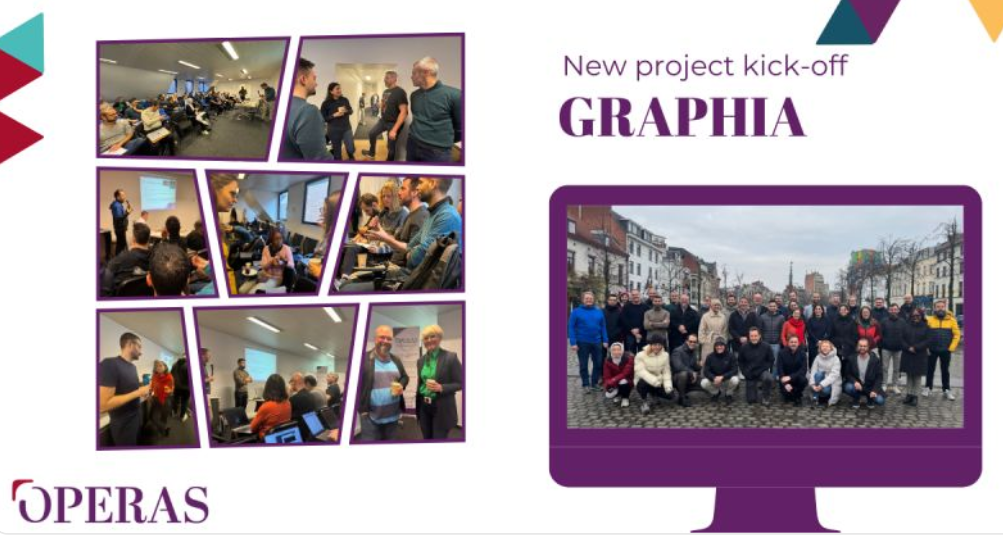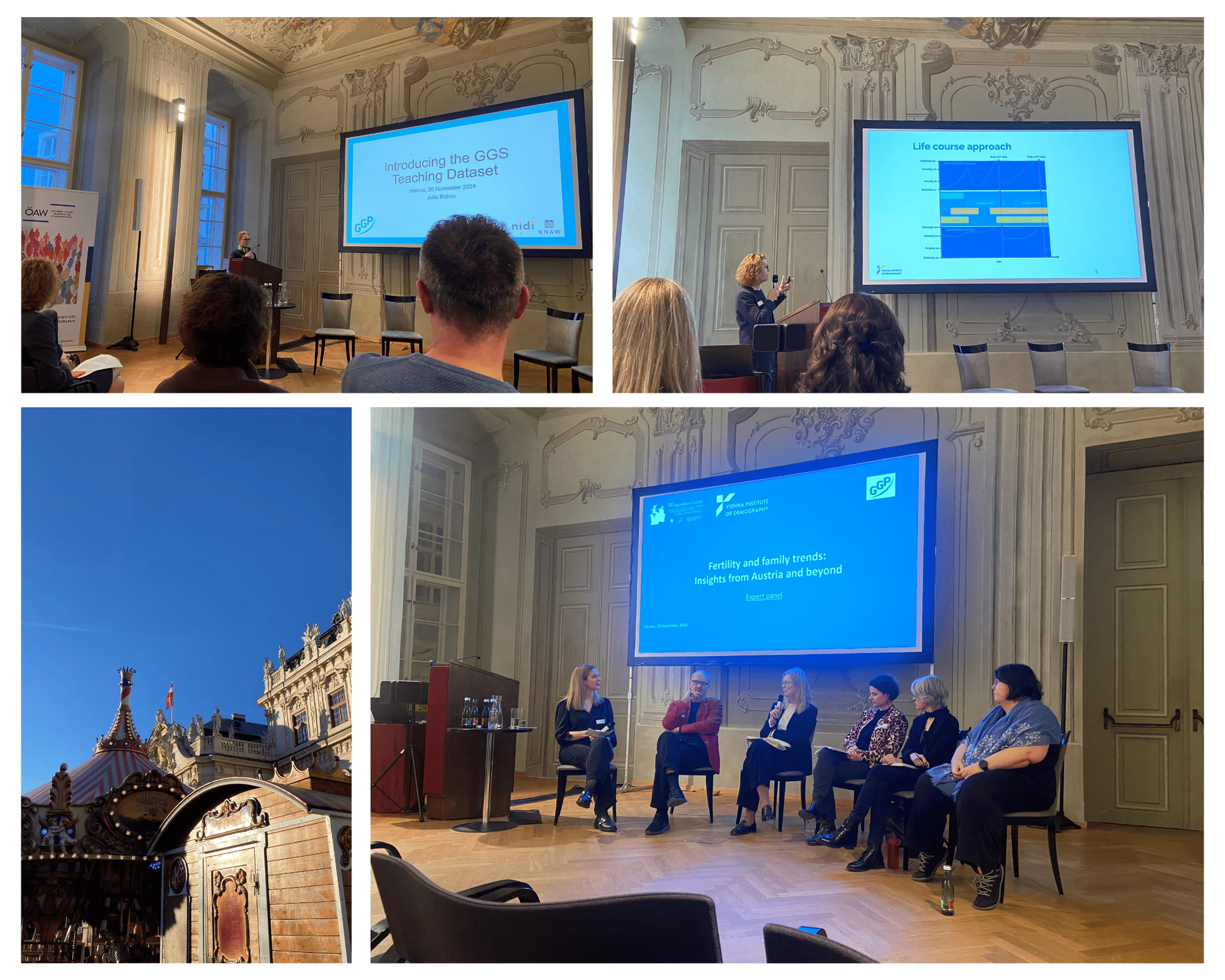The Generations and Gender Programme is delighted to announce that the Best Master Thesis Award 2025 goes to Yuting Li (University of Turku) for the thesis:
“Housing Tenure, Housing Satisfaction, and Fertility Intentions in the Nordic Context of the Early 2020s” conducted under the supervision of Jessica Nisén and Mirkka Danielsbacka.
This year’s competition was exceptionally strong, and the evaluation jury — Prof. Dr. Aat Liefbroer (NIDI-KNAW and University of Groningen) and Dr. Petra Međimurec (University of Zagreb) — was impressed by the quality and originality of all submitted theses, making the final decision very challenging. Yuting Li’s work stood out for its timely and relevant research question, cross-national design using GGS-II data, strong empirical execution, interesting approach of combining subjective and objective measures, and valuable insights into how housing conditions intersect with fertility intentions in Nordic societies.
As part of the award, Yuting Li will receive sponsored attendance to the 8th GGP User Conference (15–17 October 2025, Tallinn University, Estonia), a certificate of recognition, and the opportunity to present the research during the award ceremony.
We warmly congratulate Yuting Li on this achievement and extend our sincere appreciation to all applicants for their excellent contributions to the GGP research community!
The Generations and Gender Programme is delighted to announce that the Best Master Thesis Award 2025 goes to Yuting Li (University of Turku) for the thesis:
“Housing Tenure, Housing Satisfaction, and Fertility Intentions in the Nordic Context of the Early 2020s” conducted under the supervision of Jessica Nisén and Mirkka Danielsbacka.
This year’s competition was exceptionally strong, and the evaluation jury — Prof. Dr. Aat Liefbroer (NIDI-KNAW and University of Groningen) and Dr. Petra Međimurec (University of Zagreb) — was impressed by the quality and originality of all submitted theses, making the final decision very challenging. Yuting Li’s work stood out for its timely and relevant research question, cross-national design using GGS-II data, strong empirical execution, interesting approach of combining subjective and objective measures, and valuable insights into how housing conditions intersect with fertility intentions in Nordic societies.
As part of the award, Yuting Li will receive sponsored attendance to the 8th GGP User Conference (15–17 October 2025, Tallinn University, Estonia), a certificate of recognition, and the opportunity to present the research during the award ceremony.
We warmly congratulate Yuting Li on this achievement and extend our sincere appreciation to all applicants for their excellent contributions to the GGP research community!
The Generations and Gender Programme is excited to announce the Best Master Thesis Award to recognize outstanding graduate-level research conducted using GGP data.
We invite submissions from recent graduates in disciplines such as demography, sociology, economics, psychology, and other social sciences. Relevant research topics include (but are not limited to) fertility and childbearing, partnership formation and dissolution, gender roles, intergenerational relationships, work-life balance, migration, well-being, and life course transitions. We also welcome work on survey methodology. Thesis should be based on data from the Generations and Gender Survey, the GGP Contextual Database, or the Harmonized Histories.
Eligibility criteria
How to Apply
Applicants should submit:
Please send your application to ggp@nidi.nl by September 10, 2025.
Award
The winner will receive a sponsored attendance to the 8th GGP User conference, which will be held on 15-17 October 2025 at the Tallinn University in Estonia, along with a certificate of recognition and the opportunity to give a short presentation of their work during the award ceremony.
The award will be announced on the GGP website by September 24, 2025.
We look forward to celebrating the next generation of researchers contributing to the GGP community!
The Generations & Gender Programme (GGP) is delighted to announce the 8th GGP User Conference to be held on 15-17 October 2025 at the Tallinn University in Estonia. We invite researchers working with data from the Generations and Gender Survey, the GGP Contextual Database, or the Harmonized Histories to present and discuss their recent empirical findings and methodological approaches.
The GGP User Conference provides a unique platform for GGP users, policymakers and the broader research community to exchange ideas and insights. We especially encourage submissions of papers using data from recently conducted rounds of the GGS, papers providing new methodological insights, and papers using longitudinal or multi-country data.
The conference will be in person in Tallinn. There is no fee for the conference, but places are limited.
Papers can be submitted for oral or poster presentation. Please note that each participant can be the first author on only one paper or poster.
Abstracts of maximum 300 words should be submitted by 14th March 2025 via the form below. Authors will be notified at the beginning of April about the outcome of their submission.
Submit Abstract here
We look forward to receiving your contributions. If you have any questions regarding the conference, please direct them to ggp@nidi.nl
Scientific Committee: Ignacio Pardo (Universidad de la República, Uruguay), Yuliya Kazakova (NIDI, The Netherlands), Martin Klesment (Tallinn University, Estonia).
The GGP is excited  to be part of the newly launched GRAPHIA project, working alongside GESIS – Leibniz Institute for the Social Sciences and other partners to improve the visibility and interoperability of social science survey data. The project aims to develop the first comprehensive SSH Knowledge Graph, integrating currently disconnected data sources into a single, accessible entry point.
to be part of the newly launched GRAPHIA project, working alongside GESIS – Leibniz Institute for the Social Sciences and other partners to improve the visibility and interoperability of social science survey data. The project aims to develop the first comprehensive SSH Knowledge Graph, integrating currently disconnected data sources into a single, accessible entry point.
By leveraging existing infrastructures, GRAPHIA seeks to enhance data visualization, support AI-driven analysis, and develop reusable digital tools for the social sciences. Coordinated by OPERAS, the project will contribute to improving access to and use of social science data across disciplines.
We look forward to seeing how GRAPHIA develops and to contributing to its progress.
On November 20, 2024, the GGS-II Austrian team hosted the workshop “Fertility and Family Trends: Insights from GGS Austria and Beyond” at the Austrian Academy of Sciences in Vienna. Researchers and students gathered to discuss key demographic trends, including global uncertainty’s impact on fertility and cross-national comparisons of reproductive behaviours. The event c oncluded with a panel on the future of the GGP.
oncluded with a panel on the future of the GGP.
Following this, the Wittgenstein Centre Conference 2024 (November 21–22) examined delayed family formation, exploring its causes and societal implications.
Both events fostered valuable discussions on fertility and family studies, further enriching demographic research.
Fill the form below with your contact information to receive our monthly GGP at a glance newsletter.
